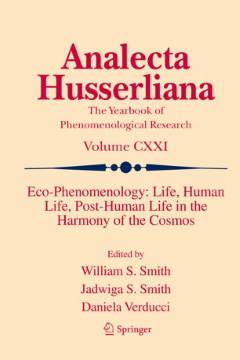Collections | Livre | Chapitre
Eco-phenomenology
the Japanese original perspective in the thought of Nishida Kitaro
pp. 309-319
Résumé
Eco-phenomenology developed from the effort of a number of continentally-oriented philosophers exploring the thought of decisive authors in the phenomenological tradition, such as Husserl, Heidegger, and Merleau-Ponty, with the purpose of offering a different insight into environmental issues than those predominant in Anglo-American philosophy. This initiative has proceeded not only from Western scholars but has had a resonance also in the distant philosophical tradition of Japan. The present contribution seeks to deepen the thought of a central figure for Japanese phenomenology: Nishida Kitaro. Nishida, indeed, was the first to introduce Husserlian thought in Japan and to seriously dialogue with the German phenomenologist from a Zen-oriented point of view. The purpose of this effort is to throw light on the theoretical origins of modern Japanese (eco)phenomenological thought, in order to grasp also its differences with Western eco-phenomenology, as led by Nishida's Buddhist reading of Husserl's works.
Détails de la publication
Publié dans:
Smith William S, Smith Jadwiga, Verducci Daniela (2018) Eco-Phenomenology: life, human life, post-human life in the harmony of the Cosmos. Dordrecht, Springer.
Pages: 309-319
DOI: 10.1007/978-3-319-77516-6_24
Citation complète:
Carella Valentina, 2018, Eco-phenomenology: the Japanese original perspective in the thought of Nishida Kitaro. In W.S. Smith, J. Smith & D. Verducci (eds.) Eco-Phenomenology (309-319). Dordrecht, Springer.










